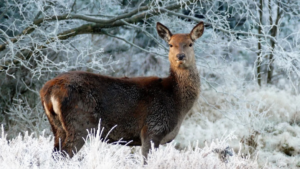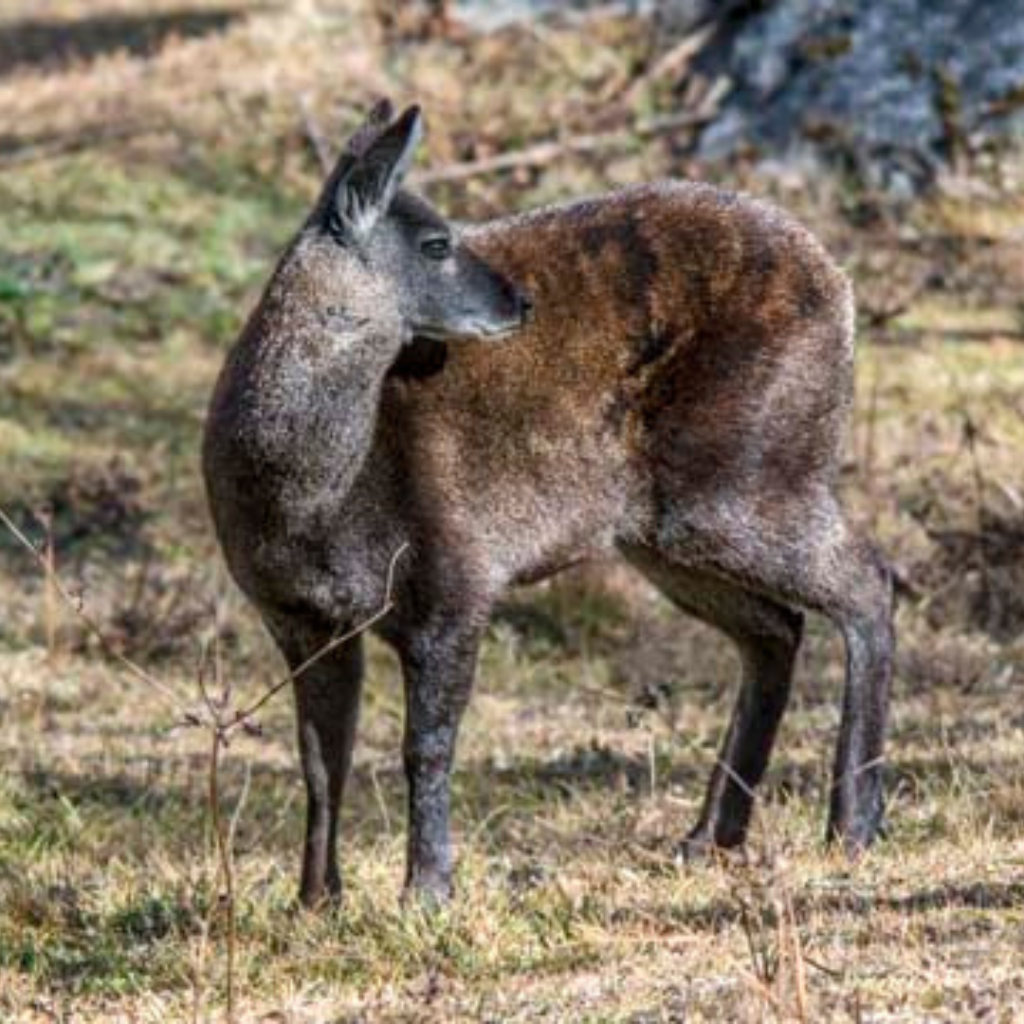
White-Bellied Musk Deer
A solitary, elusive deer known for its distinctive musk
Conservation Status | Endangered
The White-Bellied Musk Deer (Moschus leucogaster) is a small deer species found in the mountainous regions of Central and South Asia. Recognized for its unique musk glands, this deer is highly valued for its musk, which has led to significant pressures on its populations.
Habitat & Lifestyle
White-Bellied Musk Deer inhabit dense forests and alpine meadows, typically at elevations between 2,000 and 4,000 meters. They are solitary and primarily nocturnal, spending their days hidden in thick vegetation. Their diet consists mainly of leaves, fruits, and herbs, which they forage on the forest floor.
Area Found
In Pakistan, White-Bellied Musk Deer are primarily found in the northern regions, including the Himalayas and the Karakoram Range. These areas provide the dense cover and high-altitude environments that are crucial for their survival.
Quick Facts
- Height: 2-2.3 feet at the shoulder
- Weight: 15-30 kg
- Appearance: Small, stocky body with a characteristic white belly and brown fur; males possess long, curved canine teeth, which they use during mating displays
- Primary threats include poaching for their musk, habitat loss due to deforestation, and fragmentation of their natural habitats
- Unique Feature: The musk produced by males is highly prized in traditional medicine and perfumery, making this deer a target for illegal hunting, significantly impacting its populations in the wild.




Did you spot a mistake or have more to add? Let us know!
Your feedback helps Haewan keep information accurate and up-to-date.
